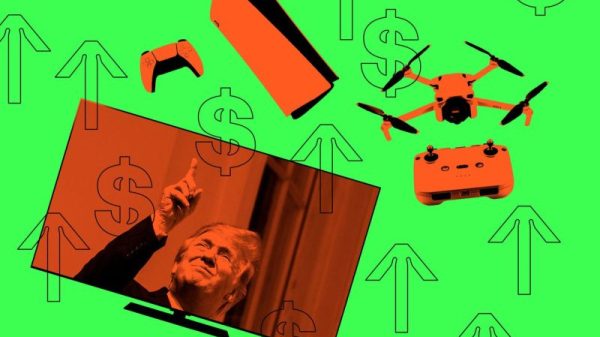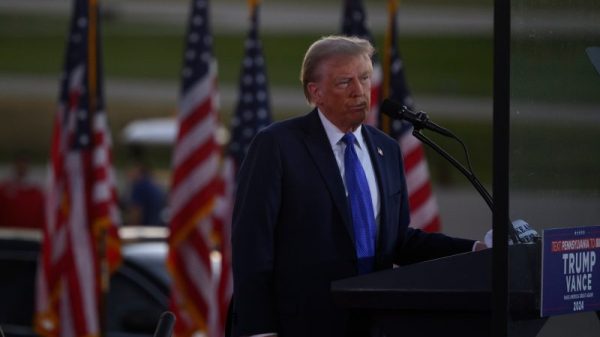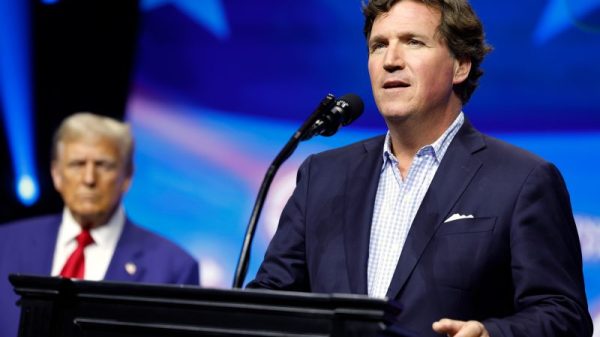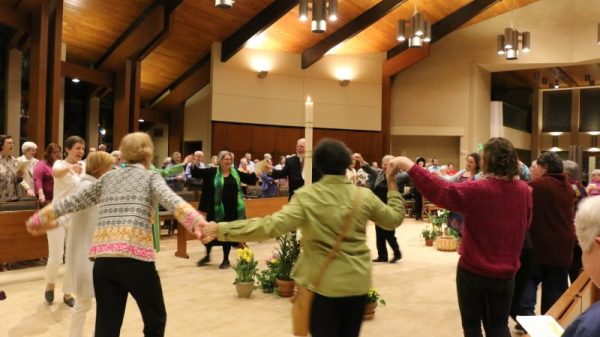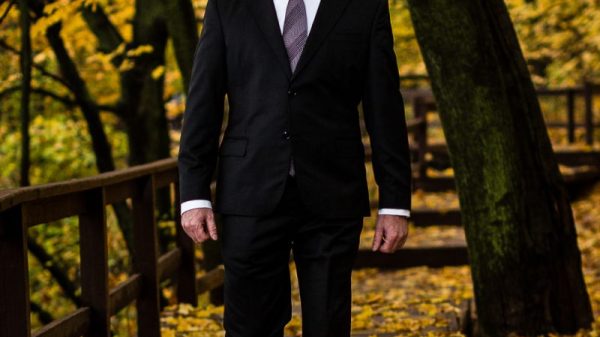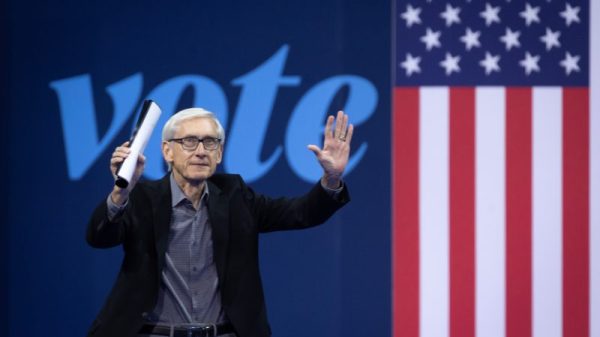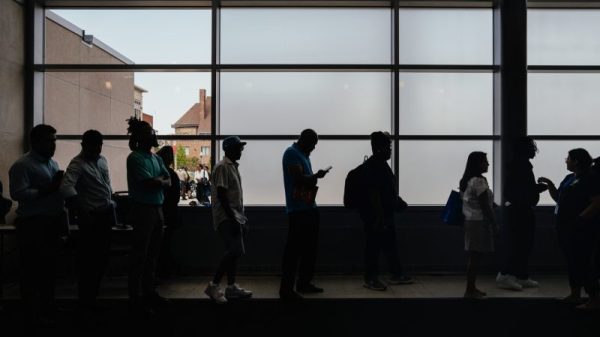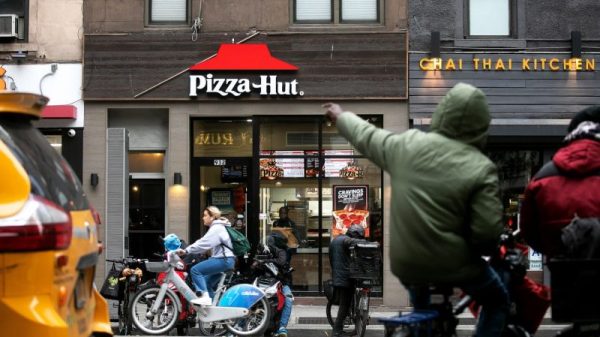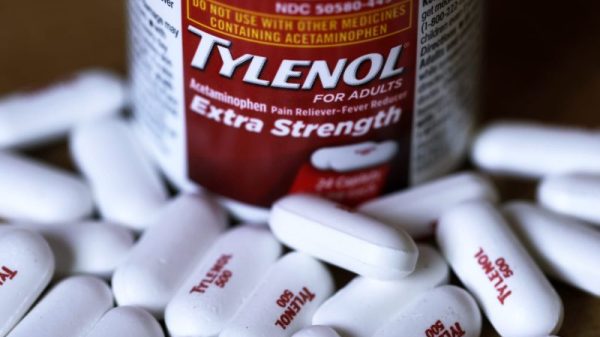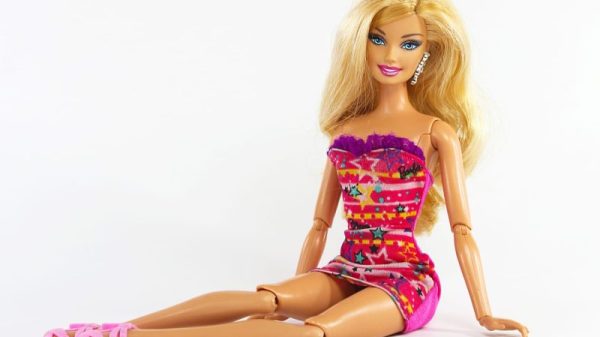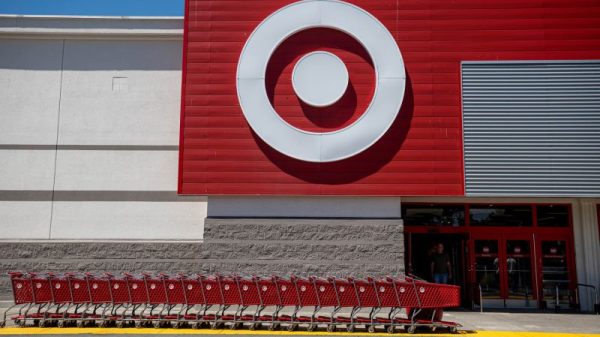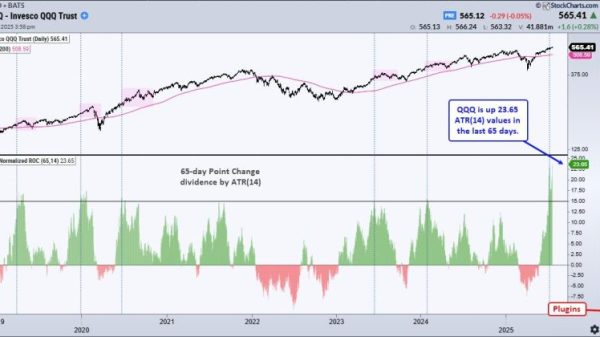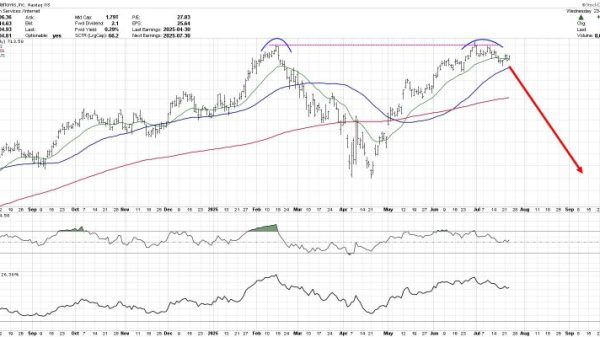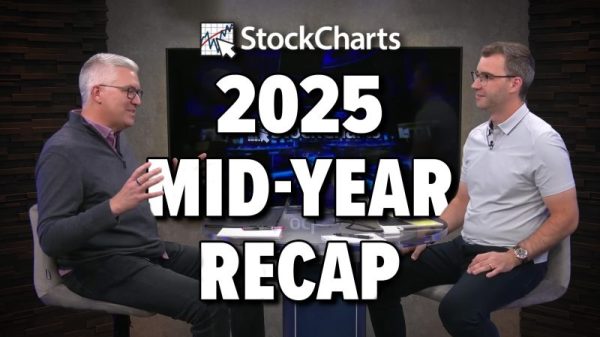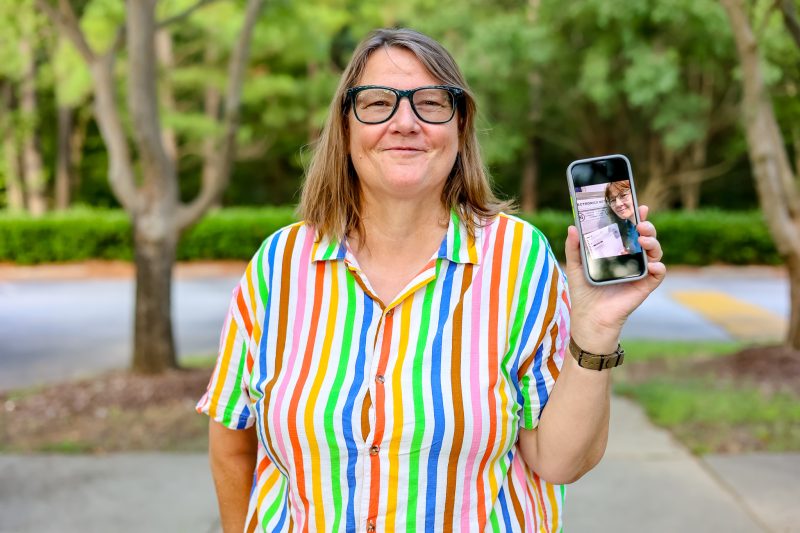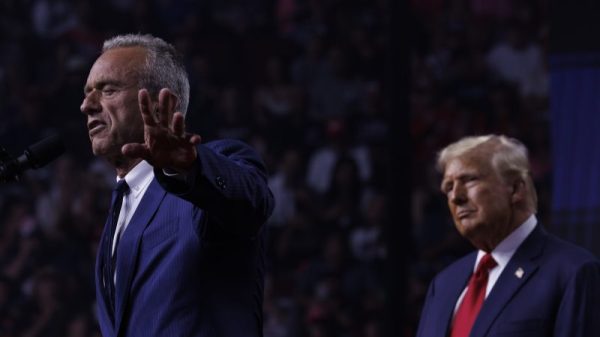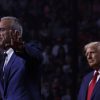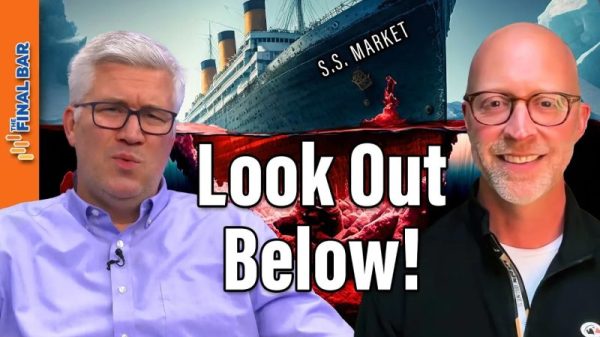Like many North Carolina residents, Susan Hogarth visited her local school in March to vote in the primary election.
After filling in the ovals next to the names of two Libertarian Party candidates, Hogarth held the ballot under her chin and took a photo of herself with her phone. She posted the selfie from the voting booth on X.
The next week, Hogarth received a letter from the North Carolina State Board of Elections that accused her of committing a misdemeanor, according to a new lawsuit.
North Carolina is one of several states that prohibit taking photos or videos of filled-in ballots. The state’s board of elections said ballot photos “could be used as proof of a vote for a candidate in a vote-buying scheme.”
The state board asked Hogarth to remove her selfie from X, according to a copy of a letter shared by Hogarth’s attorneys. Hogarth refused, and on Thursday she filed a lawsuit arguing that the state’s ban on ballot photos violates voters’ First Amendment rights.
“I want the law to go away,” Hogarth, 57, told The Washington Post.
The lawsuit, filed in U.S. District Court for the Eastern District of North Carolina, named members of North Carolina’s and Wake County’s boards of elections as defendants. Spokespeople for both boards declined to comment.
Hogarth voted on March 5 at Yates Mill Elementary School in Raleigh, where she entered a booth that was sectioned off on a table by a privacy screen. She filled in her votes for Libertarian Party presidential candidate Chase Oliver and Libertarian Mike Ross for the state’s governor.
Her selfie showed her ballot and a sign in the background that said photos were prohibited. She posted the selfie after leaving the polling place that morning, writing that she disagreed with the ban.
(1) Laws against #ballotselfie are bullshit. (2) I guess this is my endorsement for @ChaseForLiberty and @FireTheUniparty pic.twitter.com/vCGxcQsHsa
— susanhogarth (@susanhogarth) March 5, 2024
Hogarth, who previously served as the chair of North Carolina’s Libertarian Party, said she had posted a picture of herself on social media with her ballot in the past few years but didn’t receive pushback. She has hoped to promote her selected candidates and encourage others to vote outside the two major parties.
“We don’t have, you know, millions of dollars to put out signs to blanket an area,” Hogarth said. “So any little grassroots thing we can grasp at is important to us.”
Just over a week after posting her selfie, Hogarth received a letter from an investigator for the North Carolina State Board of Elections, informing her that she had run afoul of the law and requesting that she remove the photo from X, Hogarth’s lawsuit said.
Hogarth said she weighed her options: She could delete the post from X, she could leave the post online and see whether the board would pursue charges against her or she could fight the law. Her husband, Bill Knighton, was initially worried about Hogarth facing legal trouble, Hogarth said, but she wanted to try to abolish a law she felt was unnecessary.
Hogarth found that she wasn’t the only person to disagree with the regulations. Many states restrict what ballot photos are allowed and where they can be taken — an issue that came into the national spotlight in 2016 when singer Justin Timberlake removed a selfie of his Tennessee ballot from Instagram.
New Hampshire passed a law prohibiting ballot selfies in 2014, but two courts struck down the ban after calling it unconstitutional. California and Colorado began allowing ballot selfies in 2017 after reversing long-standing laws.
A federal judge in New York, meanwhile, refused to authorize ballot selfies in 2017, saying the absence of photos in polling places protects against fraud and prevents delays at the polls. Texas prohibits photographs within 100 feet of a polling station.
Photographing a voted ballot in North Carolina is a Class 1 misdemeanor, which carries a maximum penalty of 120 days in jail and a fine.
Karen Brinson Bell, the executive director of the North Carolina State Board of Elections, said in a statement in 2020 that instead of taking selfies at the voting booth, “there are legal ways to display your voting pride, such as wearing your ‘I Voted’ sticker or taking a picture outside of the precinct.”
On March 20, Hogarth posted a picture of the letter she said she received from the board and wrote the caption: “Absolutely not.” She began looking for legal representation and connected with attorney Jeff Zeman, who told The Post that voters should be able to take photos “without the fear of prosecution.”
“At the very center of the idea of political speech is, you know, telling people what you did when the rubber met the road — you put your money where your mouth is and you voted for the person; you took action to try to make change,” Zeman said. “And, you know, the picture itself does that and so much more.”
Hogarth didn’t reply to the letter from the state’s board of elections, she said, but charges have not been filed against her, and she plans to take another selfie when she votes in November. She’ll have extra motivation to endorse the candidates she selects: Hogarth will appear on the ballot as a Libertarian Party candidate running for a state Senate seat.


